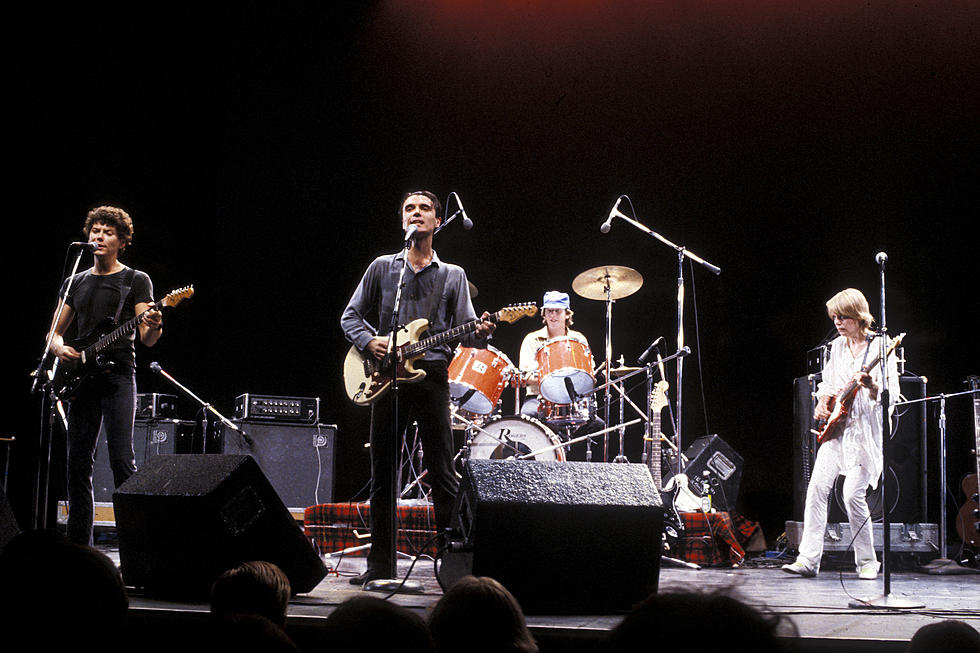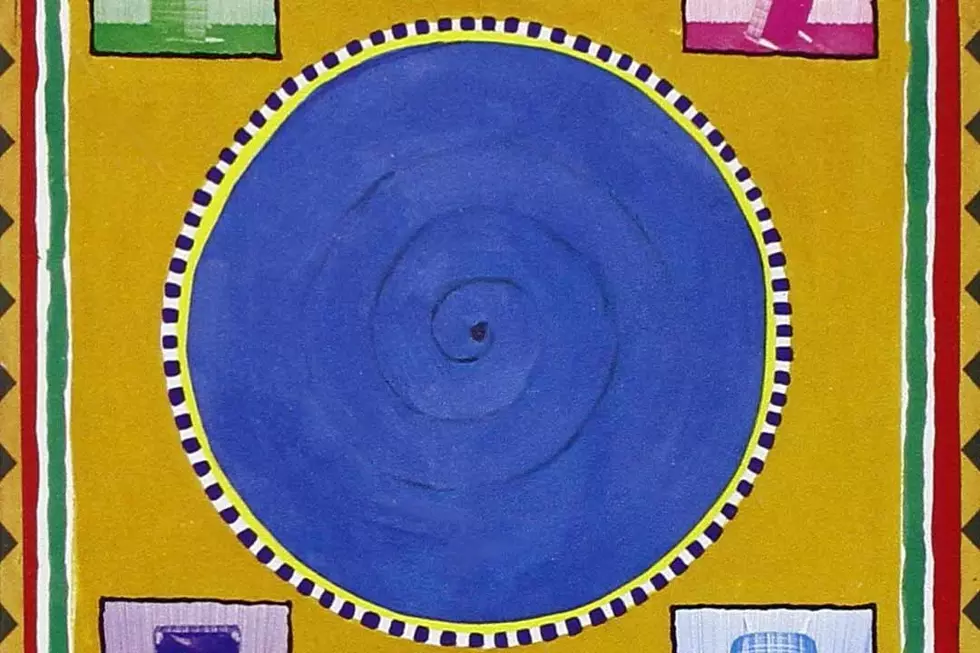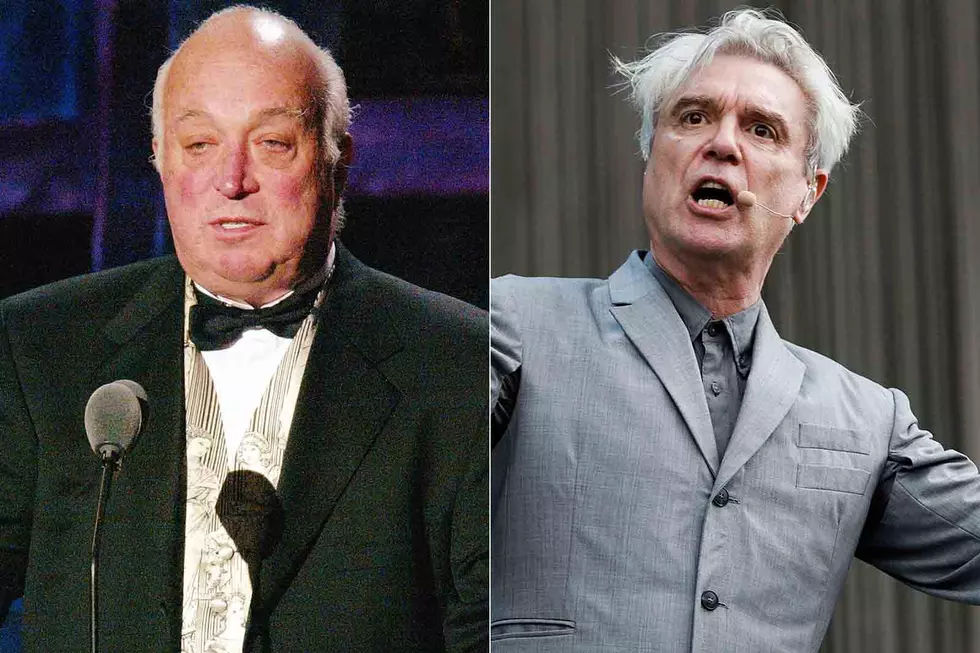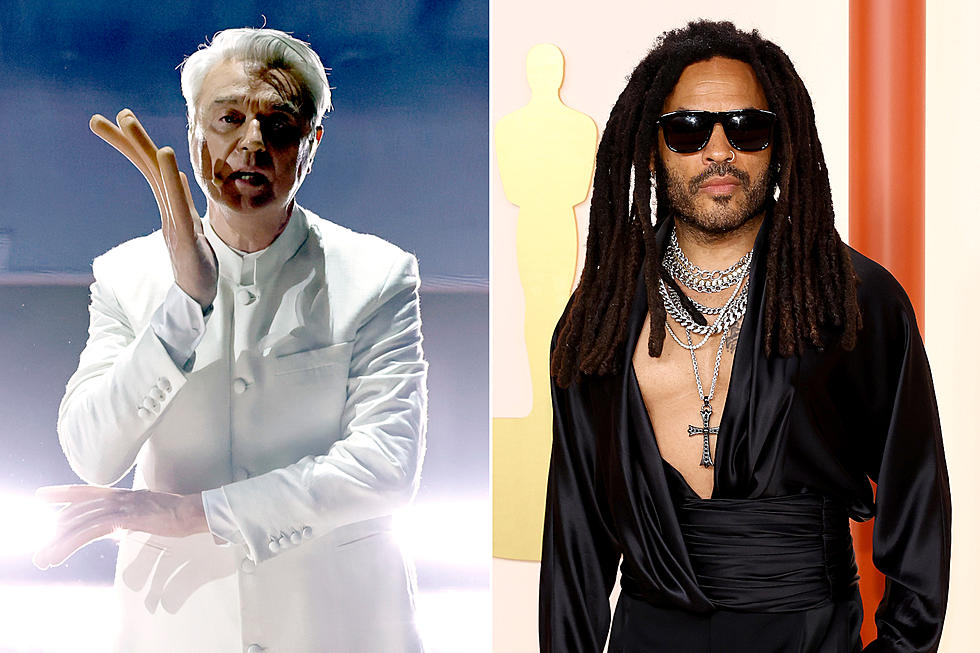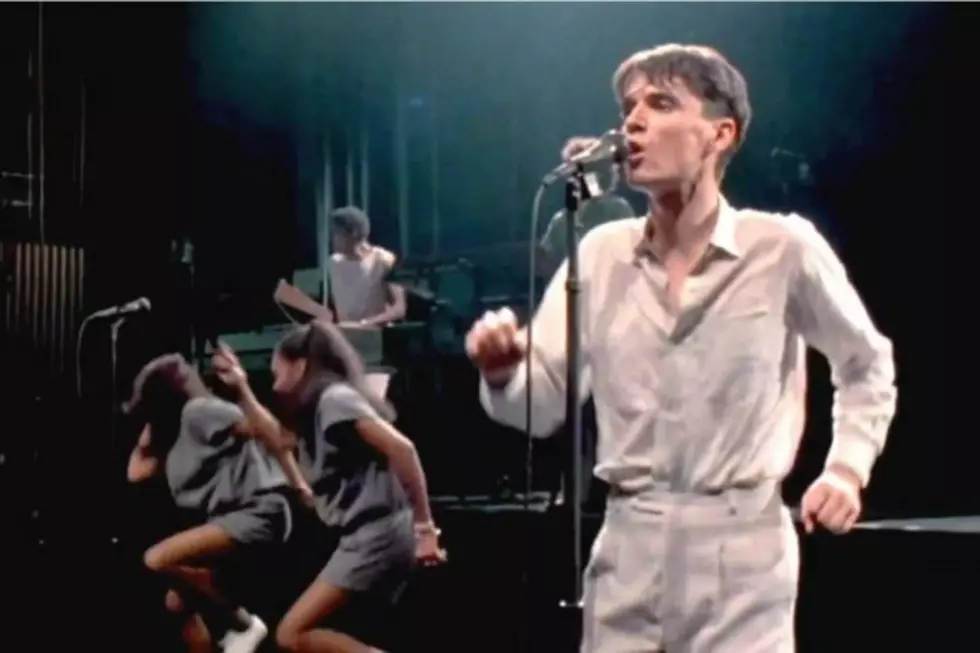
David Byrne Recalls ‘Healing’ Power of Expanded Talking Heads Lineup
Talking Heads' shift to an expanded lineup in the mid-'80s coincided with some of the band's most critically and commercially successful recordings — but for singer David Byrne, the band's musical growth led to even more important personal growth.
Byrne relived that part of his past during a recent appearance on the Marc Maron podcast, recalling how the Talking Heads started experimenting with looser, jam-driven, overdub-dependent music after hooking up with producer Brian Eno. Laughing that today he'd consider this way of doing things an "indulgence," he recalled that the group would start recording with "basically nothing." "We were doing all right commercially," noted Byrne. "We could afford to spend two weeks jamming in the studio and just saving the good parts."
And although initially the band situation remained "basically just the four of us" while "some other musicians would come in and do overdubs," this led to an overhauled stage presentation when they went back on tour. "It gave the mistaken impression that we were a larger band in the studio, because when we had to reproduce that live, we had to double the size of the band," said Byrne. "We'd done all these crazy things."
With all those extra musicians on stage, Byrne felt the music acquire a new power — and ultimately, he credited it with transforming his entire creative approach while making him a more well-adjusted person.
"The vibe onstage was more ecstatic. In some ways trancelike, repetitive. It would command you to kind of surrender to the groove," he mused. "I needed it personally; it was personally liberating. I didn't go to a shrink, but that music was my shrink — it liberated me physically, mentally, psychologically, and all that stuff. I thought, 'Wow, here we go.' It's a total cliche, but I'm getting healed — the music is healing me."
See Talking Heads and Other Rockers in the Top 100 Albums of the '80s
25 Interesting Rock Movie Facts
More From Ultimate Classic Rock



